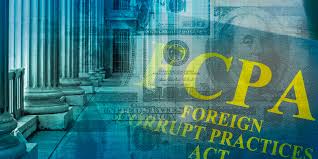KT Corp’s Bribery Schemes (Part II of III)

When you look under the hood of FCPA enforcement actions, the schemes employed by corporate actors can be shocking. The “creativity” of bad actors can provide important lessons learned and help future investigators when trying to unearth bribery schemes. At the root of most schemes is brazen arrogance and rationalization of otherwise improper behavior.
South Korea
From 2009 to 2017, KT high-level executives maintained slush funds, consisting of off-the-books accounts and physical stashes of cash to pay government officials. KT Corp. executives used the slush funds to provide gifts, entertainment and illegal political contributions to members of the Korean National Assembly.
During the period 2009 to 2013, a KT Executive Officer and another Senior Executive created the slush fund by providing inflated bonuses to company officers and executives, who then returned a portion of the bonus payments to create a slush fund of $1 million. The cash was stored in a safe on the sixteenth floor of KT’s offices, while a senior executive maintained some funds in his personal bank account. KT Corp. booked the $1 million slush fund as executive bonuses.

In October 2013, media reports on the bonus scheme caused the Executive Officer to resign. He was eventually charged criminally with embezzlement and was acquitted after a trial.
Despite this public scandal, KT Corp. made no attempt to remediate its internal accounting controls. In fact, KT Corp. implemented a new scheme to generate funds for illegal payments. KT’s Corporate Relations Group purchased gift cards and then converted them to cash. To execute the scheme, KT Corp. hired a vendor who converted the gift cards into cash and then delivered the cash back to KT Corp. executives. The vendor was paid a commission for converting the gift cards to cash.
KT Corp. executives continued to make illegal political contributions to members of the National Assembly. A total of approximately $393,574 in contributions were made to 99 Korean lawmakers. KT Corp. booked the expenses as either “research and analysis” or “entertainment.” In November 2021, Korean authorities indicted KT Corp. and 14 high-level executives for criminal violations stemming from the gift card scheme.

Between 2015 and 2016, KT Corp. made improper payments totaling $1.6 million to three foundations connected to Korean politicians. All of these payments were booked incorrectly, either as charitable donations or as a sponsorship. The requests for these payments were made directly by government officials. KT Corp. made no effort to determine whether the payments were legal.
In addition to improper payments, KT Corp. hired two advertising executives from these foundations and assigned them to desirable positions. KT Corp. altered its criteria for outside advertising agencies to hire a new agency created by close associates from these foundations. Without conducting any due diligence, KT Corp. eventually paid the two individuals a total of $454,009 in salaries and their new advertising firm a total of $5.88 million in advertising fees.
Vietnam
Between 2014 and 2018, KT Corp. employees arranged bribes through third parties to bribe Vietnam government officials to secure valuable government contracts to provide solar cell power and training for five vocational colleges. KT Corp. failed to conduct due diligence of any of the third parties.

KT Corp. retained a construction company to pay a bribe of $95,031 to a Vietnam government official to secure the solar cell power contract. The construction company arranged for an employee to deliver the cash to the government official. The construction company eventually secured reimbursement from KT Corp. by claiming that the payment was for “expenses for engaging in sales activities.”
In 2013 and 2014, KT Corp. participated in a consortium to bid on providing the hardware and software to several vocational colleges in Vietnam. To facilitate the bribery payment, a Vietnam government official introduced KT Corp. to a Vietnamese company to serve as a local agent, with the understanding that the local agent would pass a percentage of any commission payments to the government official.
In 2015, one of the consortium partner’s refused to pay a portion of the agents fee because of the risk of bribery. KT Corp. agreed to cover the partner’s portion of the payment. Eventually, the government official was paid $550,000 by KT Corp. and a new consortium partner. To disguise the payment, KT Corp. enlisted a new consortium partner, who was not subjected to any compliance due diligence review.
A bribery payment of $735,000 through the local agent was listed in an invoice as “site survey for installation,” and additional bribery payments were separately included in future invoices.
















1 Response
[…] Source link […]